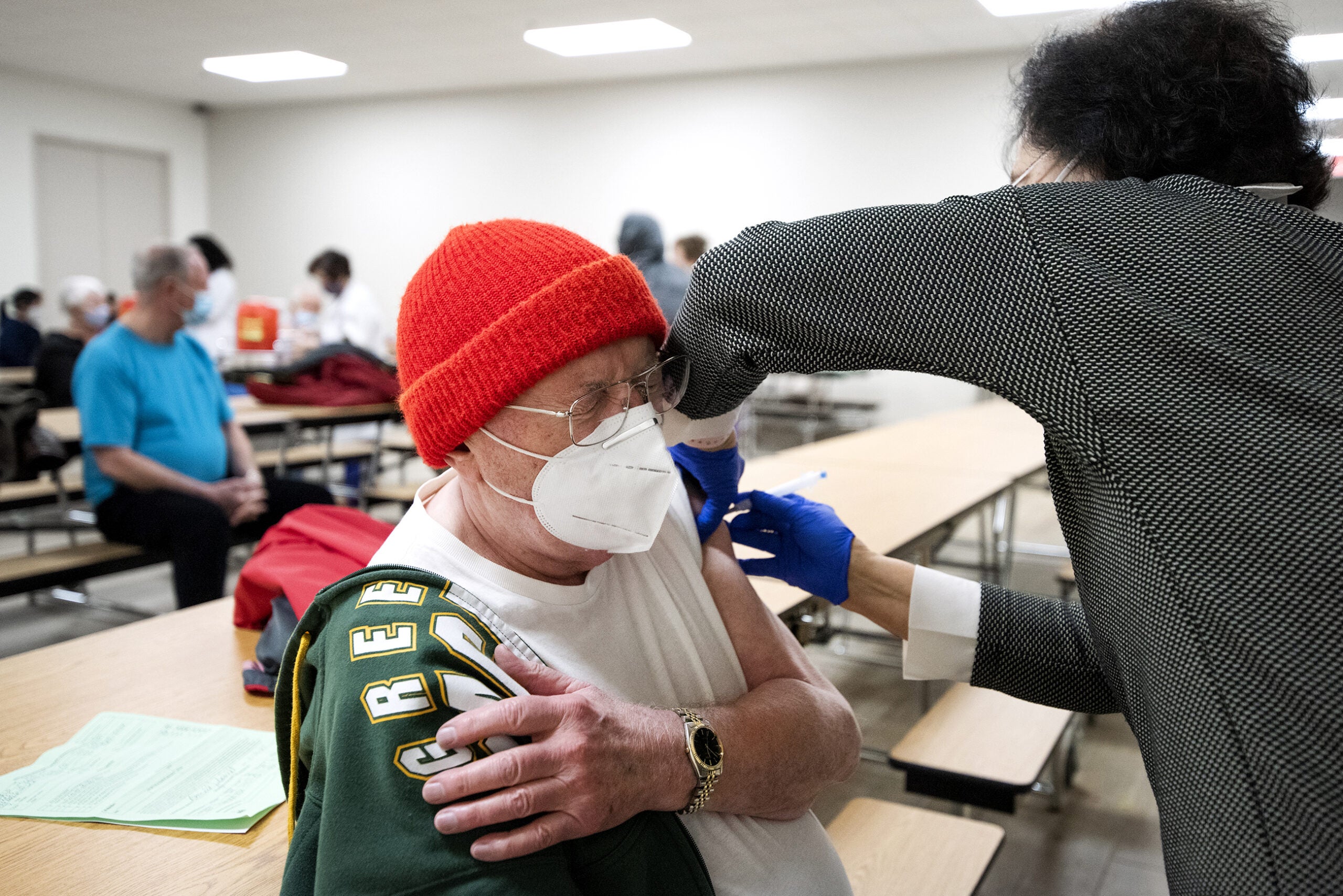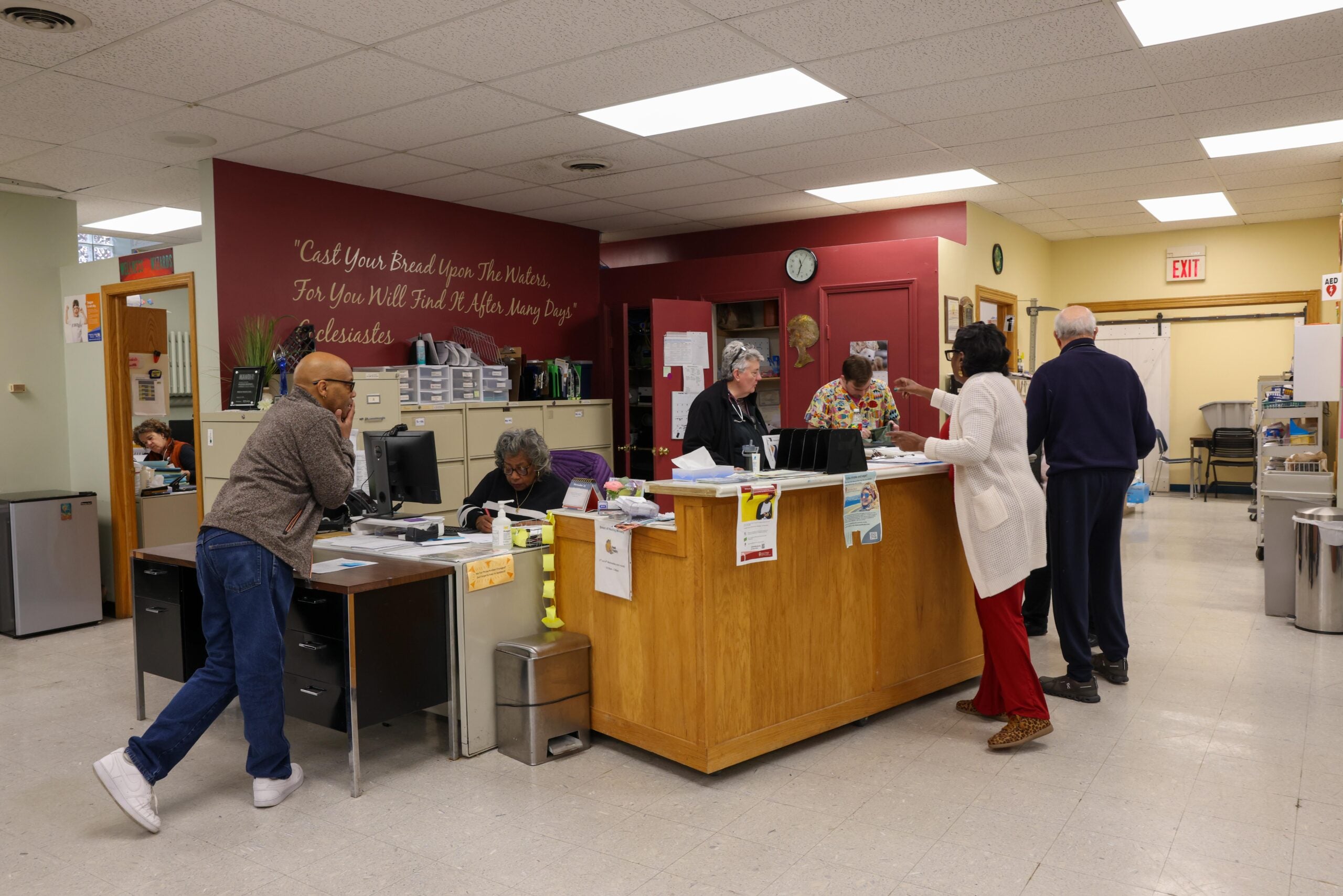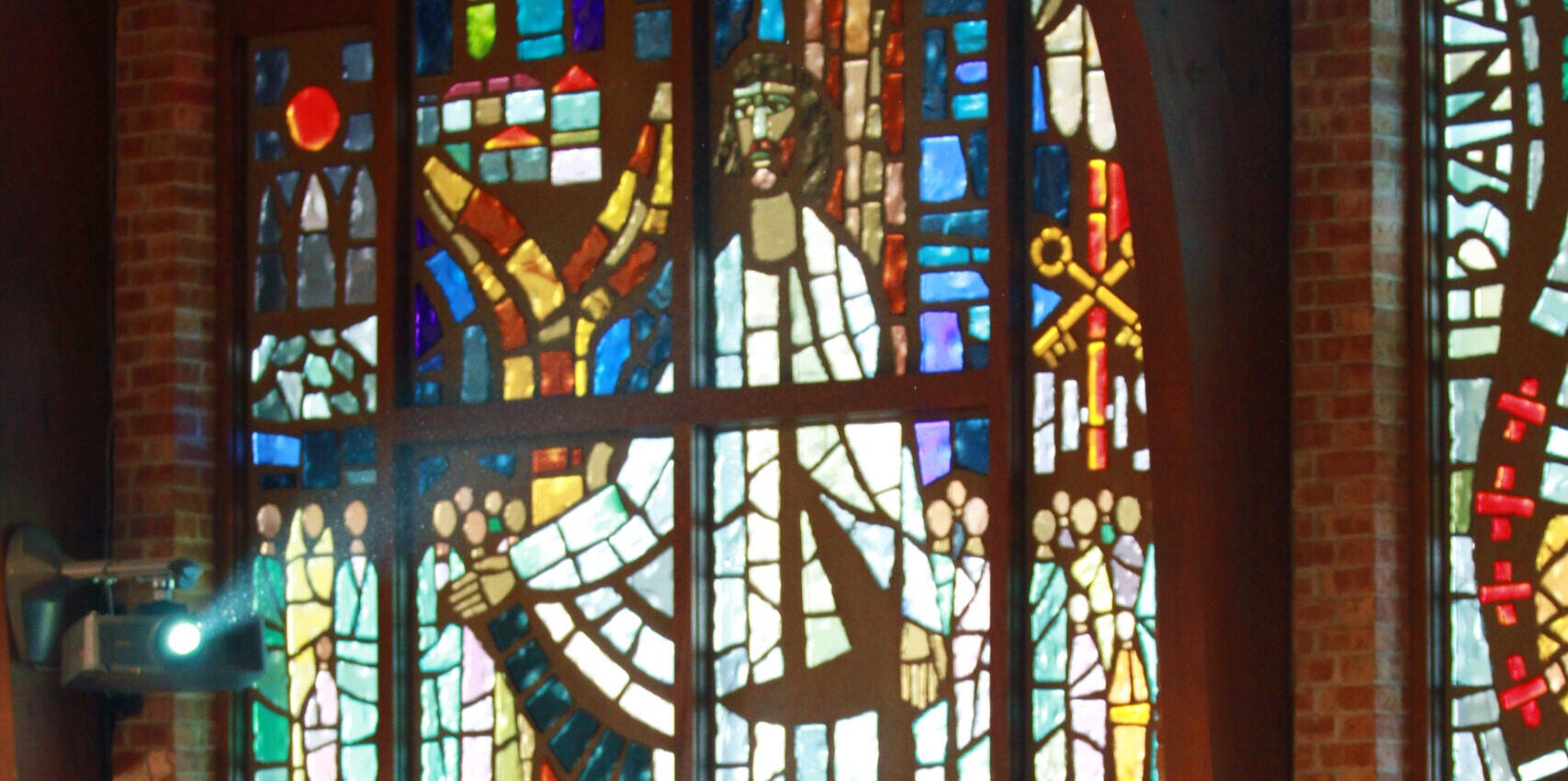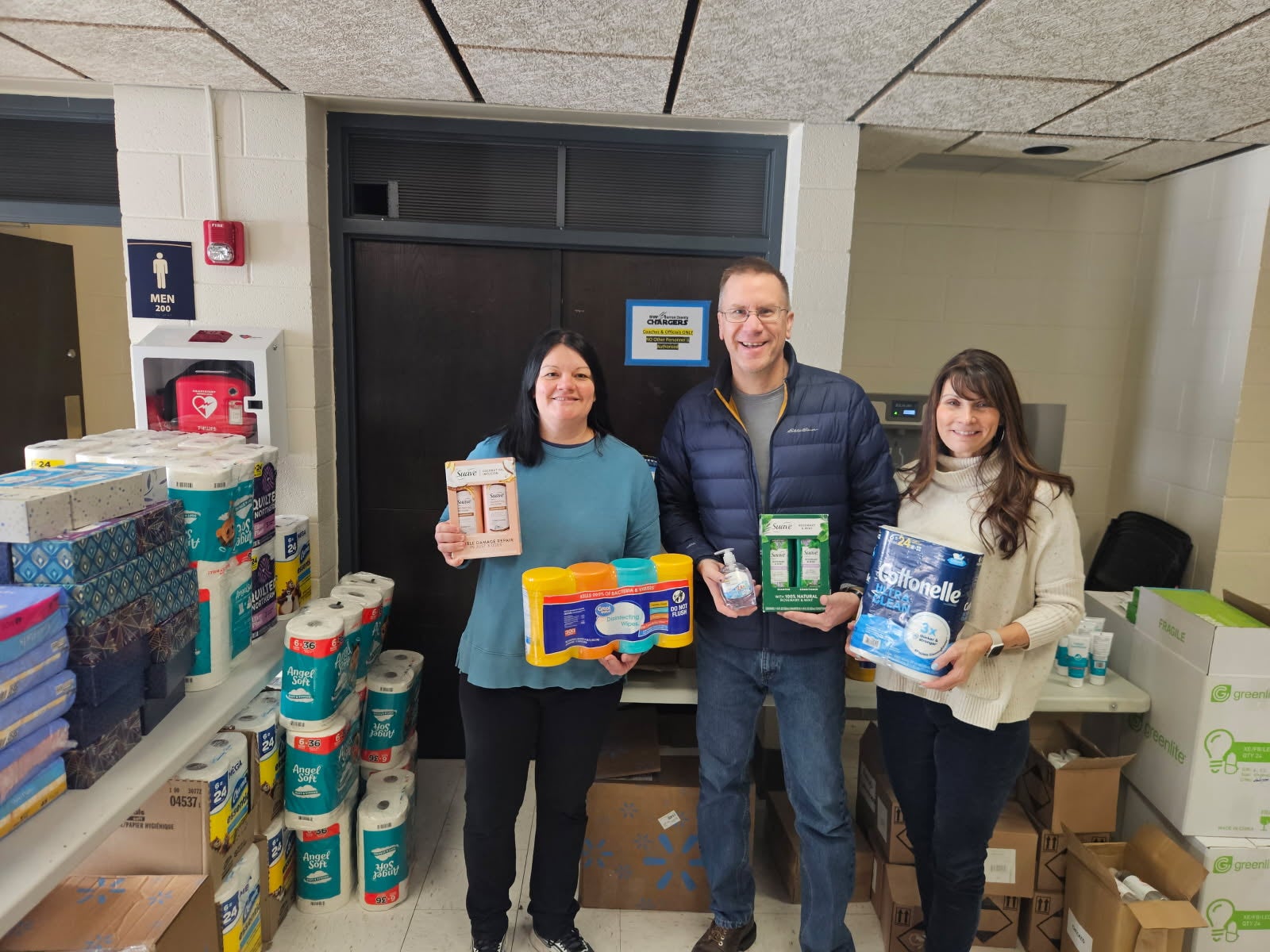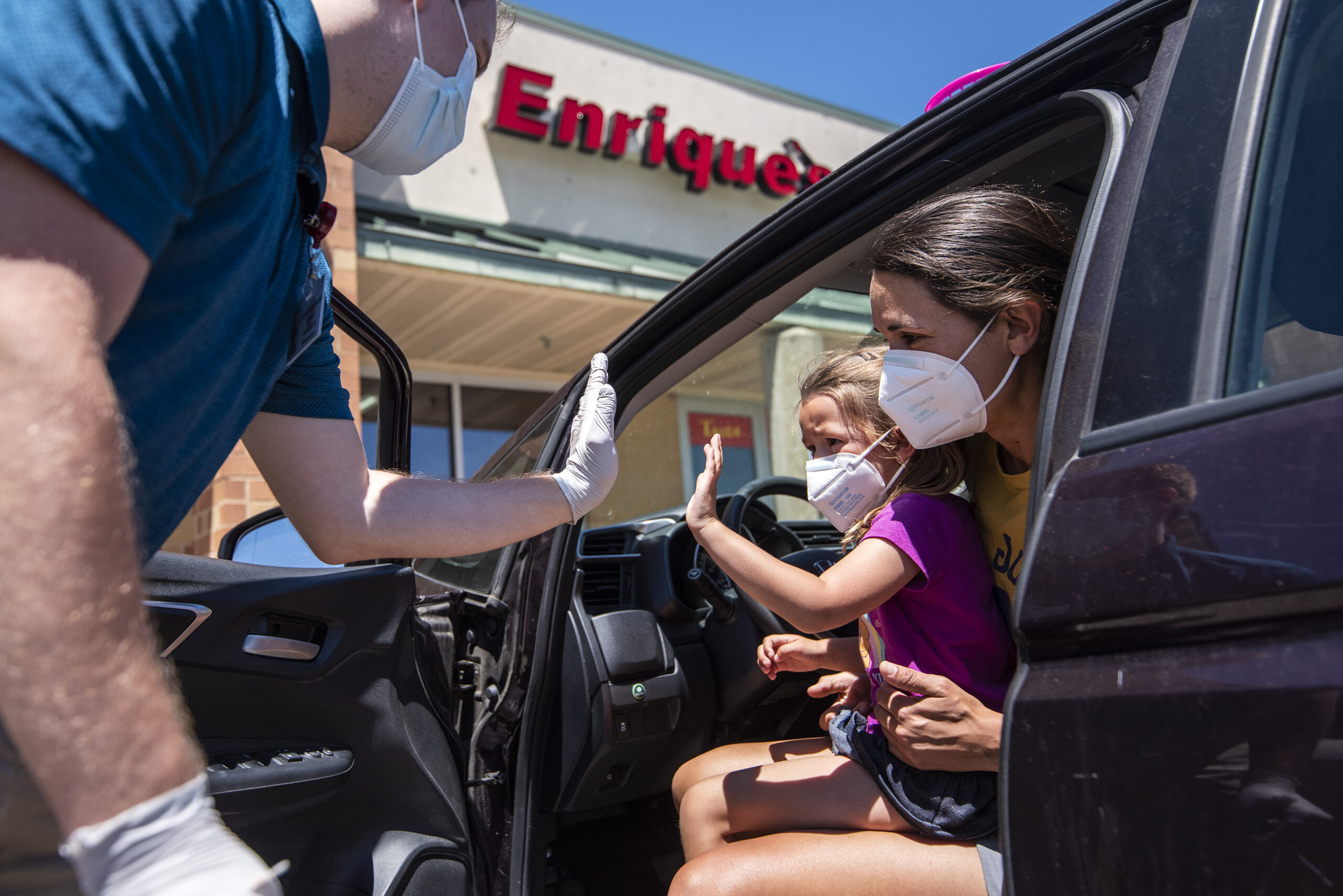Milwaukee is looking for new ways to reach residents who’ve yet to be vaccinated for COVID-19.
In Milwaukee County and Wisconsin, fewer people are seeking out vaccines daily, said Dr. Ben Weston, medical director of the Milwaukee County Office of Emergency Management.
Even though about 40 percent of county residents have received at least one dose of vaccine — putting local numbers on par with state and federal totals — officials need to adjust their strategy, Weston said.
News with a little more humanity
WPR’s “Wisconsin Today” newsletter keeps you connected to the state you love without feeling overwhelmed. No paywall. No agenda. No corporate filter.
Initially, mass vaccination sites were a priority, he said. But around the state, appointments at those sites are starting to pile up. For example, the Alliant Energy Center in Madison had more than 2,000 appointments left as of Wednesday morning — for this week alone.
People vaccinated at mass clinics were typically excited to receive their shots, and able to schedule appointments online, get off work and travel to the clinics, Weston noted.
“As those willing and able populations become smaller and smaller, we’re looking to shift focus,” he said.
But Weston doesn’t think Milwaukee County has hit a wall — yet. Several Milwaukee County vaccination sites are accepting walk-in patients, removing one factor he sees as a barrier to vaccination.
Appointments aren’t required at the Wisconsin Center, Kosciuszko Park or community clinics at the Northwest and Southside health centers. In other areas of the state, mass vaccination sites are also now giving shots without appointments.
So far, white Wisconsinites are twice as likely to have received the vaccine compared to their Black counterparts, according to the state Department of Health Services. But Weston warned it’s not vaccine hesitancy typically holding back people from vulnerable groups. There are other barriers including child care, transportation and work, he said.
According to the Milwaukee Journal Sentinel, dozens of employers have held vaccination clinics for their workers — some even offering incentives for employees who partake. Even the Milwaukee Brewers hosted an event for players and staff.
Officials are working to bring vaccines to the people, Mayor Tom Barrett said earlier this week. More than 1,000 Milwaukeans were vaccinated at a mobile clinic last week at UMOS on the south side, he said. He also highlighted the role faith leaders are playing in Milwaukee’s vaccination campaign.
On Saturday, Christian Faith Fellowship Church and Walgreens paired up for a clinic on the north side. Christ the King Baptist Church vaccinated walk-ins Tuesday, while Jackson Park Lutheran Church, Mount Horeb Baptist Church and Hephatha Lutheran Church have clinics planned for next week.
Pastor Mary Martha Kannass from Hephatha Lutheran Church received her vaccine from the Bread of Healing Clinic at nearby Cross Lutheran Church.
“To receive the vaccine in the sanctuary there was just a beautiful faith experience, thinking about how God is taking care of the community,” she said.
She’s excited to partner with the health department for a clinic at her own church, providing easy access for people within the community, she said.
“Churches everywhere are praying for the pandemic to ease, for us to be able to be back in person together, for our elders not to be so isolated, for our kids to be safe at school, for us to be able to worship in large numbers and sing again,” Kannass said. “And so, I view the vaccine as really an answer to prayer.”
Almost 15,000 people have already been vaccinated at mobile sites, said Commissioner Kristin Johnson of the Milwaukee Health Department. Milwaukee may open one or more drive-thru vaccine clinics in May, she said.
When it comes to vaccinating hard-to-reach populations, having a single-shot option is important, Weston said. While health officials have temporarily paused the use of Johnson & Johnson’s one-dose vaccine as they investigate a possible link to blood clots, Weston expects it will be reinstated soon, he said, noting approved birth control medications appear to cause clots at a much higher rate than the vaccine.
Wisconsin Public Radio, © Copyright 2026, Board of Regents of the University of Wisconsin System and Wisconsin Educational Communications Board.

